Covid: Government backtracks over local travel advice after confusion
- Published
- comments
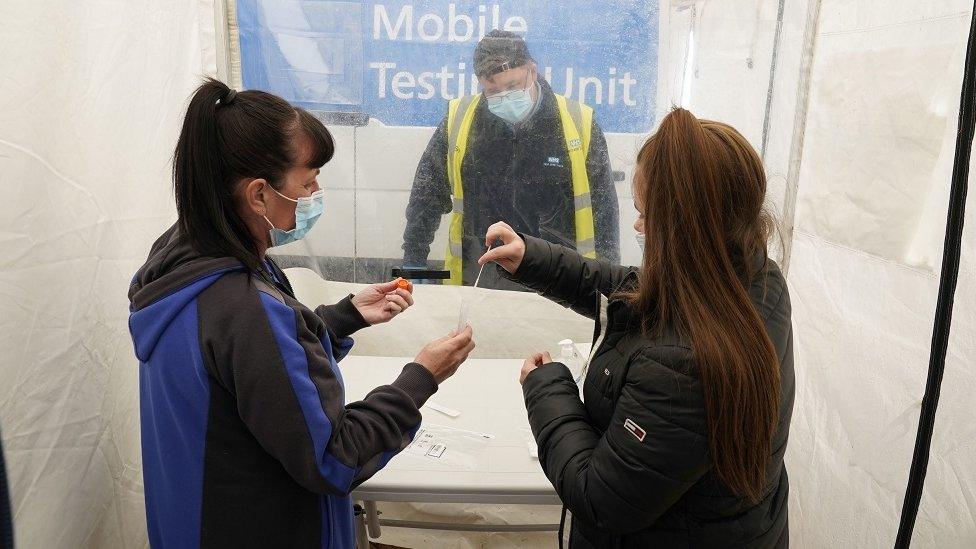
North Tyneside is one of eight areas in England where people are being asked to minimise travel
Ministers have backtracked over travel advice for eight areas worst hit by the Indian virus variant, after a change in guidance led to widespread confusion.
The amended advice, external asks people to minimise travel into and out of Bolton, Blackburn, Kirklees, Bedford, Burnley, Leicester, Hounslow and North Tyneside.
Earlier advice had asked people to avoid non-essential travel altogether.
Downing Street has admitted it caused "confusion".
Prime Minister Boris Johnson's official spokesman said: "We've updated the guidance online to make it clearer that these are not local restrictions and we do acknowledge the confusion this caused [on Tuesday]."
It came as Mr Johnson's former chief adviser Dominic Cummings gave evidence to a joint Commons committee hearing on key government decisions during the pandemic.
Many people cancelled plans at short notice after it emerged on Monday that advice specifically for the eight areas had been published the previous week without any government announcement, which included asking people to avoid non-essential travel.
The new advice - updated on Tuesday evening - asks people in the affected areas to meet outdoors and stay two metres apart from anyone in other households, wherever those things are possible.
That advice also refers people to their local authorities' Covid guidance and says anyone travelling to red or amber list countries should arrange "a testing or managed quarantine package".
'Contempt'
Shadow foreign secretary and MP for Wigan Lisa Nandy said people in many areas had "stopped listening" to official advice and that confused messaging had undermined public trust.
"We woke up on Monday morning to find apparently that guidance had been in force on the government's website since Friday, telling us not to move in and out of affected areas but nobody had bothered to tell us," she said.
She said that "to treat us as an afterthought on a government website is to treat people's lives with absolute contempt."
Dr Bharat Pankhania, an infectious disease expert who advises local authorities on health plans, said confusion was leading to a fall in cooperation from the public.
He told Radio 4's Today programme that "when people like us in local authorities start changing the game plan or do things without really explaining our actions, they stop eventually listening to us."
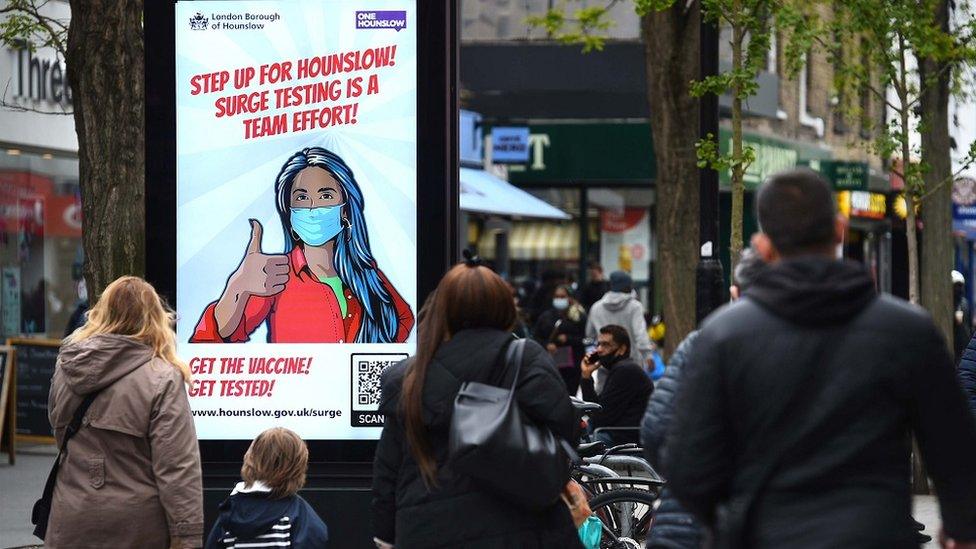
Hounslow in west London is another area where people are being asked to meet other households outdoors rather than indoors
Among those considering cancelling plans as a result was Julie Suttar, from Aberdeen, who told the BBC on Tuesday that she had booked a non-refundable hotel in Leicester to visit family she had not seen for more than a year.
"I can't believe it, I've been on the phone to my sister, in tears. Where's this come from? Where's the notice?" she asked.
The uncertainty prompted a swift denial from Downing Street that it was imposing local lockdowns by stealth.
That came after several of the local authorities affected by the new advice said they had not been consulted about it - and only learned of its existence from journalists.

Local row raises long-term questions

It has become an accepted fact that public health messaging during the pandemic needs to be clear and concise.
On that test, government communications to people in the eight identified hotspot areas in England failed in recent days.
People in most of those communities were simply unaware of tighter new guidelines posted on the government website on a Friday afternoon.
When they emerged late on Monday evening there was understandable frustration with the suggestion that people should not leave their council areas unless for essential reasons.
Then it took nearly 24 hours for officials to clarify and amend the guidelines to simply minimising travel.
The row will blow over but it raises bigger long-term questions.
Ministers say they want to shift from legal restrictions to public guidance as the roadmap progresses in England - in other words not using the law to dictate behaviour but giving the public enough information to allow them to moderate their own behaviour.
This sounds fine in theory but recent events in the hotspot areas reveal the potential risks of this approach.
Failure to provide clarity on what people can or cannot do at a time of uncertainty might potentially cause confusion and frustration - the opposite of what is intended.

On Tuesday afternoon, local councils for the eight areas - which together represent more than two million people - emerged from a meeting with government officials and insisted there were no restrictions on travel in their areas and "no local lockdowns".
They said they were working to increase vaccination and testing - with Kirklees the latest area to announce door-to-door testing - as well as to support people self-isolating.
Greater Manchester's Labour mayor Andy Burnham said the confusion over the advice was a "major communications error" which had a "major effect on people's lives".
Norma Redfearn, Labour mayor of North Tyneside, said "after a day of confusion" it had been confirmed the area was "at the same stage of the road map as the rest of the country".

LOOK-UP TOOL: How many cases in your area?
LOCKDOWN RULES: What are they and when will they end?
SOCIAL DISTANCING: How can I meet my friend safely?
OXFORD JAB: What is the Oxford-AstraZeneca vaccine?

Overall cases of Covid are at their highest rate for six months in Bolton, at 452.1 cases per 100,000 people.
The original guidance, published on a page titled "what you can and cannot do", external, advised people in the eight areas of England to meet outside where possible and avoid travelling in and out unless essential.
It was first published on 14 May to cover Bolton, Blackburn with Darwen and Bedford, before being updated, without an announcement, to include the six other areas on Friday.
Efforts to contain the virus come as people aged 30 and 31 in England are being invited to book an appointment to receive their first dose of Covid vaccine.
The NHS is urging these million or so to take up the offer of a jab at one of the 1,600 available locations, including mosques, museums and rugby grounds, as well as pharmacies.
Nearly three-quarters of adults in the UK have already had one dose, and more than two-fifths have had two.
On Tuesday, the UK reported 15 new deaths within 28 days of a positive test and 2,493 new confirmed cases. Figures for reported deaths early in the week are sometimes higher due to weekend reporting delays.

SHE'S DOING THINGS HER WAY!: Shrill's Annie is done being a wallflower and is ready to be herself
OUR RELATIONSHIP WITH OUR BODIES: How has the pandemic impacted how we view ourselves?

- Published25 May 2021
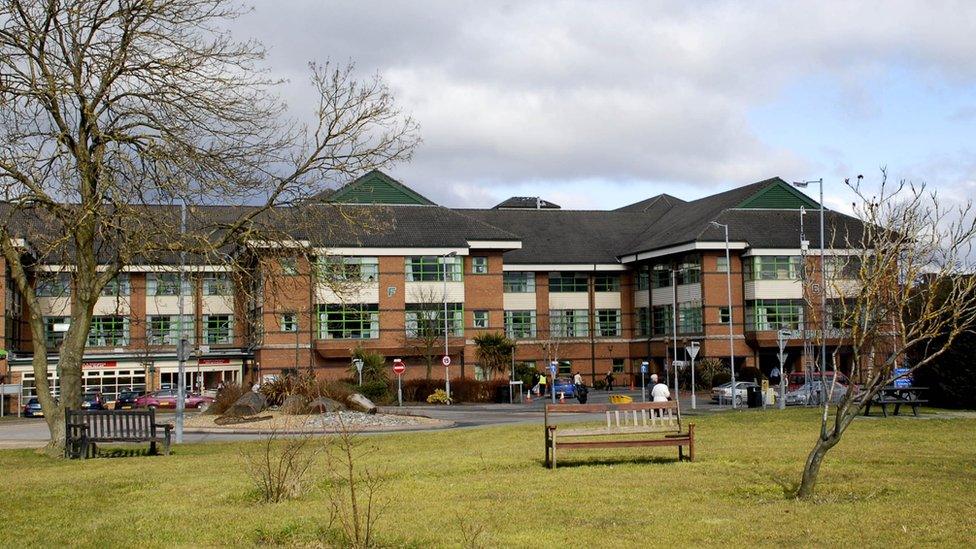
- Published25 May 2021
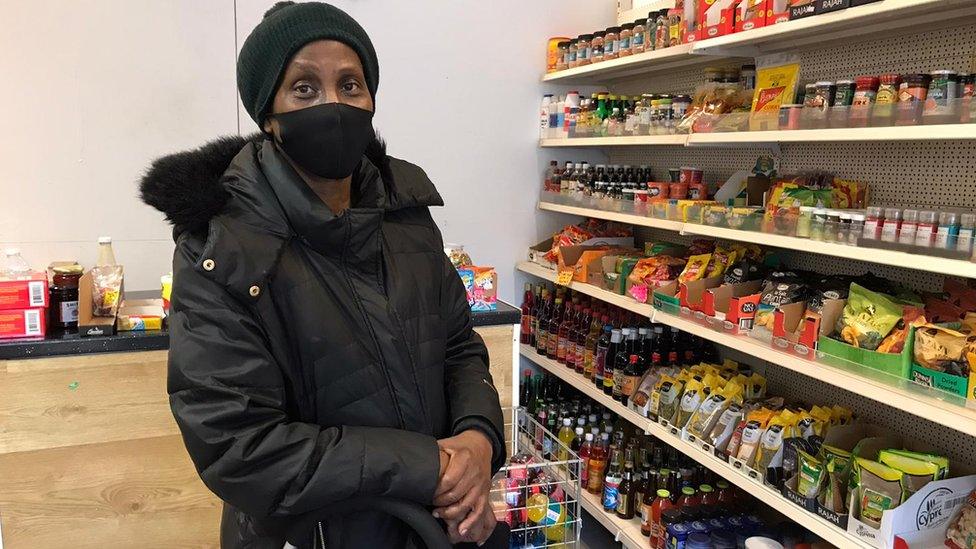
- Published25 May 2021
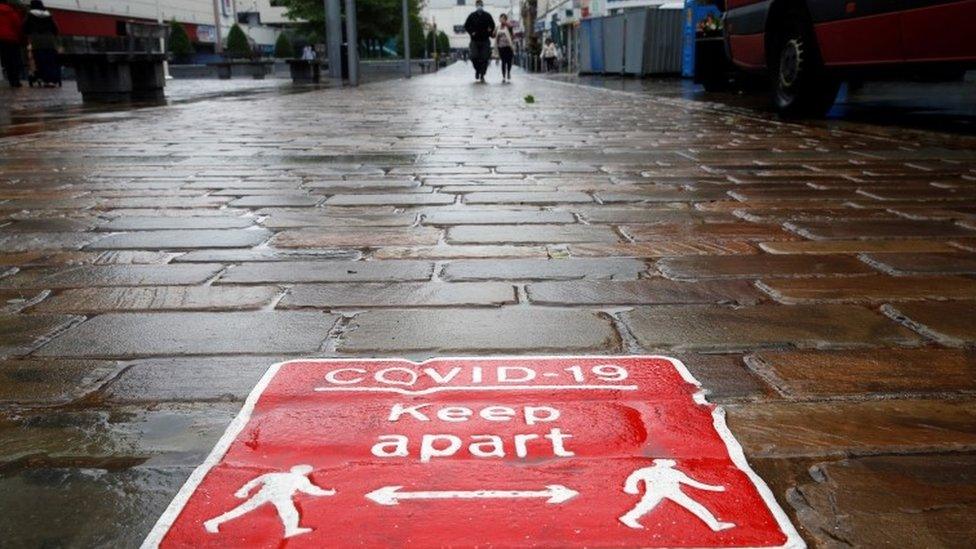
- Published25 May 2021
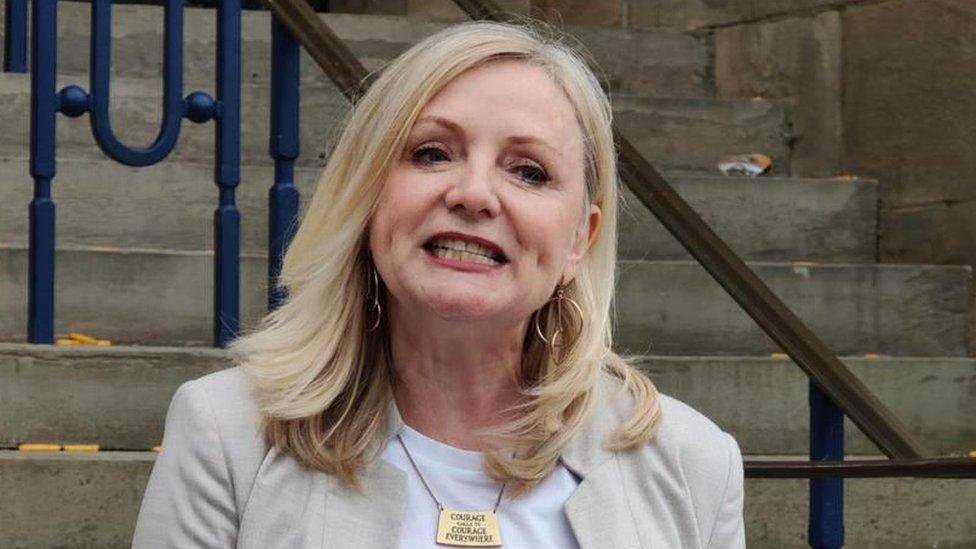
- Published25 May 2021
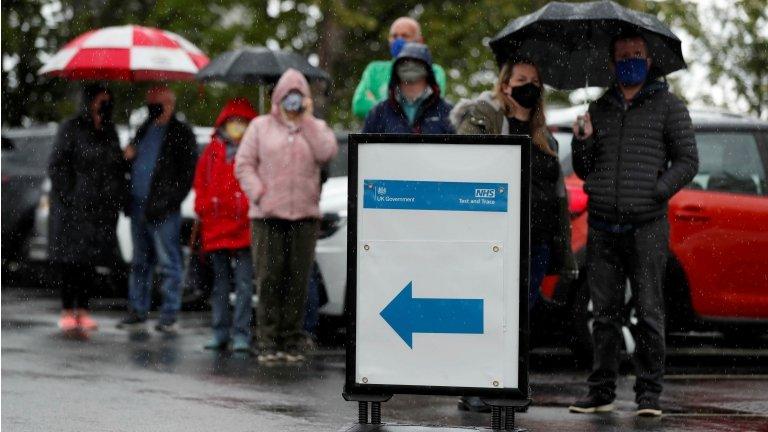
- Published7 June 2021

- Published1 July 2022
